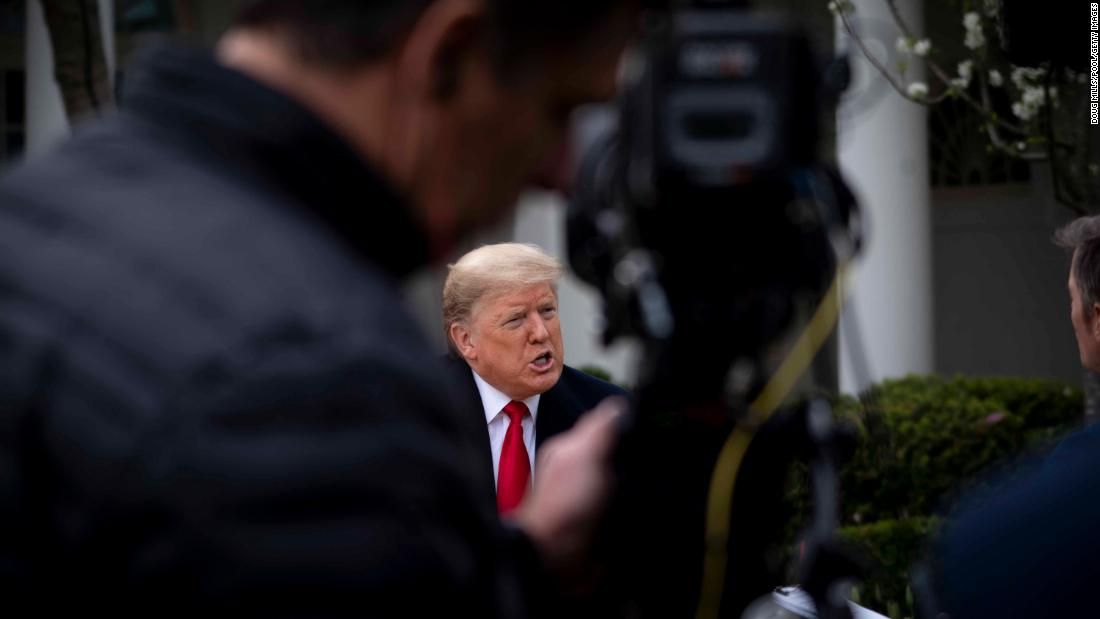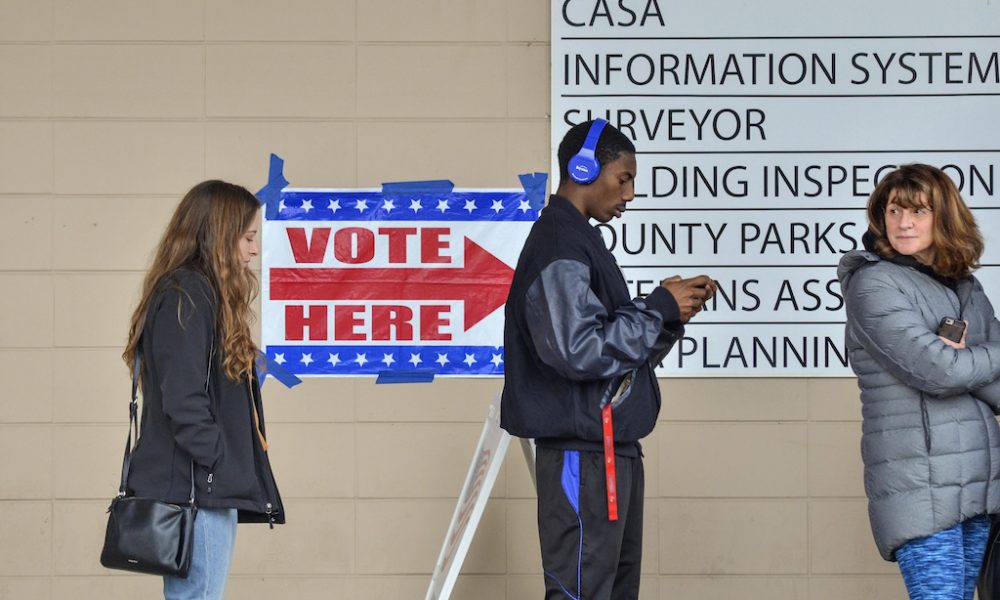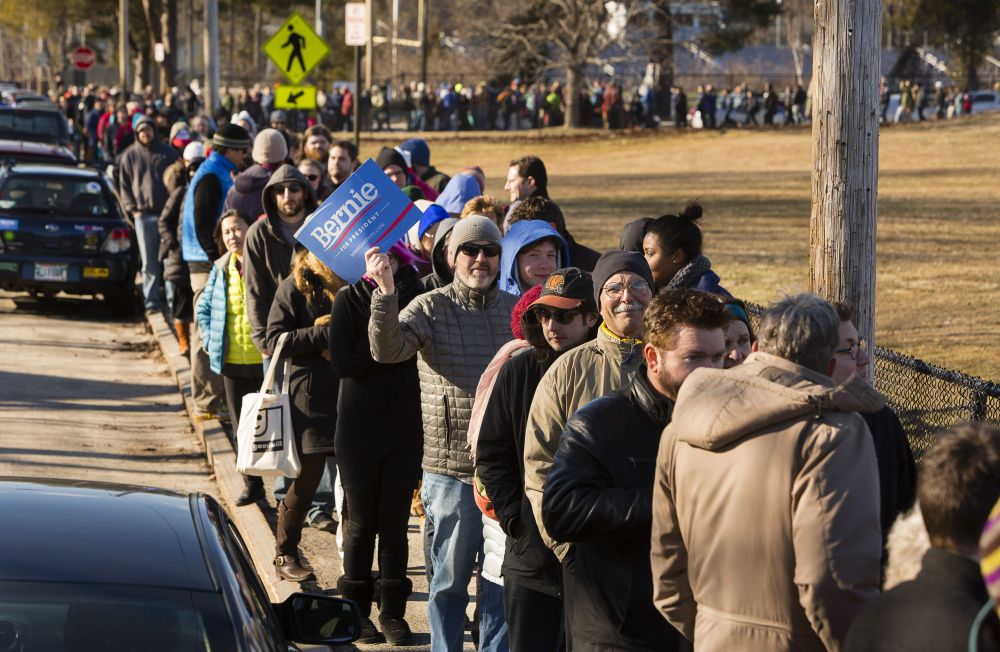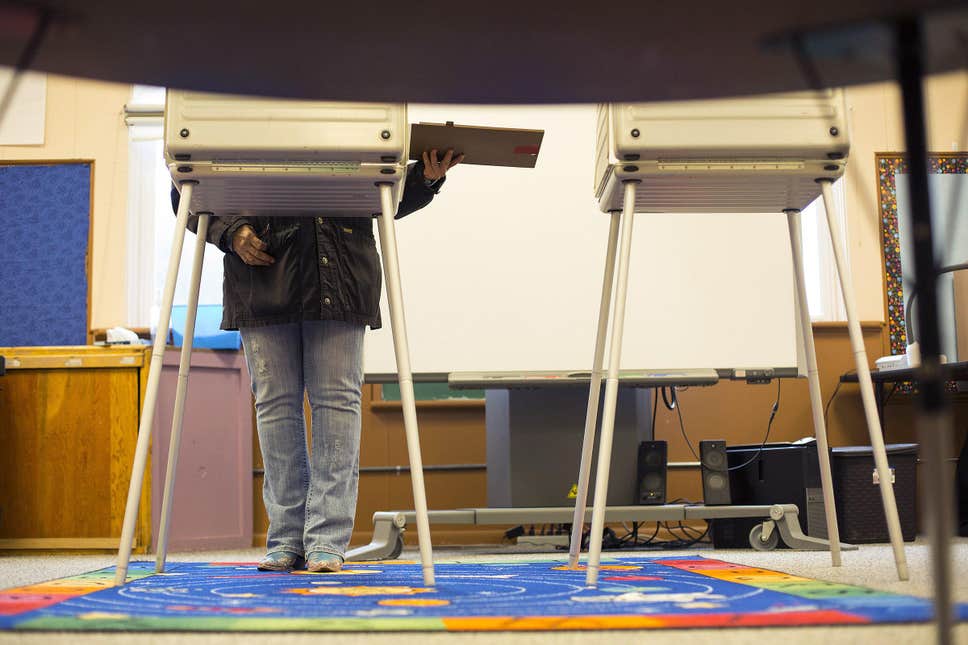Trump says Republicans won’t win an election again if it’s easier for Americans to vote – What is voter suppression?

A few minutes every morning is all you need.
Stay up to date on the world's Headlines and Human Stories. It's fun, it's factual, it's fluff-free.
During an appearance on Fox and Friends on March 30, President Donald Trump claimed that the Republican Party would never win another election if it were easier for Americans to vote.
The president’s remarks came while dismissing Democratic-led efforts to reform the US electoral system amid the coronavirus pandemic.
To counteract disruption caused by the outbreak, and to make sure states safely run elections, Democrats proposed measures such as vote-by-mail, same-day registration and early voting.
Despite their efforts, these measures were not included in the final US$2.2 coronavirus stimulus package that, according to The Guardian, allocated US$400 million to states to help them run elections.
“The things they had in there were crazy. They had things, levels of voting that if you’d ever agreed to it, you’d never have a Republican elected in this country again," Trump said. “They had things in there about election days and what you do and all sorts of clawbacks. They had things that were just totally crazy and had nothing to do with workers that lost their jobs and companies that we have to save."
With increasing uncertainty about when the coronavirus outbreak will end, with some experts estimating that it could take as long as 18 months, it remains possible that the pandemic could affect the 2020 US election.
Issues in recent Democratic primary elections held earlier this month in Florida, Illinois and Arizona, demonstrated the difficulty of holding elections during a global pandemic.
According to reports, there was widespread confusion in the three states as voters cast their ballots. Not only was turnout low, but lines were long and polling stations were understaffed or closed altogether.
Election officials will need far more than the US$400 million included in the stimulus package if the coronavirus outbreak continues into November, according to the Brennan Center for Justice. The nonpartisan law and policy institute claims it would cost around US$2 billion to “ensure that the pandemic does not prevent a free and fair election.”
The president is not the only Republican to admit that making it easier for Americans to vote will hurt the Republican Party.
Mitch McConnell, the US Senator from Kentucky and current Senate Majority leader, denounced Democratic plans to increase voter turnout — by, for example, making Election Day a federal holiday — as a “power grab.”
For Democrats, Trump’s comments signal that voter suppression is part of his re-election strategy.
In a statement released on Monday, the Democratic National Committee (DNC) said, “Ensuring that Americans can vote during the COVID-19 crisis is fundamental to maintaining our democracy. It is shocking that Trump is essentially admitting that when the American people vote, Republican(s) lose."
A DNC spokesperson added, “Trump knows that suppressing the vote is the only way he and Republicans win in November."
What is voter suppression?

According to Demand the Vote, a California-based voting rights charity, voter suppression “is any effort, either legal or illegal, by way of laws, administrative rules, and/or tactics that prevents eligible voters from registering to vote or voting.”
Allegations of voter suppression are nothing new. In 1965, Martin Luther King Jr. marched from Selma, Alabama to the capitol in Montgomery in protest of white legislators across the south trying to prevent African Americans from voting.
But the issue has taken on new significance since a 2013 Supreme Court decision gutted a key provision of the 1965 Voting Rights Act.
Since its introduction, the decades-old legislation had stipulated that the federal government had oversight of changes made to electoral systems in US states with a history of voter discrimination.
However, federal oversight was removed in 2013, meaning that states no longer needed clearance from the federal government to pass election and voting process legislation.
As a result, more than half of US states have since passed laws that “have kept significant numbers of eligible voters from the polls, hitting all Americans, but placing special burdens on racial minorities, poor people, and young and old voters."
According to The Guardian, Democrats often accuse Republicans of conducting a systematic campaign intent on preventing minorities, immigrants, young people — groups that tend to vote Democrat overwhelmingly — from going to the polls. Republicans, however, say they oppose voting reform because it could lead to voter fraud or the federal government running elections.
Regardless of how either party justifies its stance, the US performs poorly on an electoral integrity index produced by academics at Harvard University and the University of Sydney.
The country, which is the world’s oldest continuous democracy, ranks alongside the Middle Eastern nation of Oman and several points below Croatia in that index.
According to former President Barack Obama, the US “is the only advanced democracy that deliberately discourages people from voting."
Voter suppression tactics

Activists say that an increasingly common disenfranchisement tactic is limiting what is considered acceptable identification needed to vote.
About seven percent of Americans don’t have photo ID, and the number is higher among minorities. Data reveals that black people comprise 25 percent of voting-age US citizens without a current government-issued photo ID. White people make up just eight percent.
This pattern is replicated across the country.
After North Dakota enacted its current ID law in 2017, 19 percent of Native Americans lacked qualifying ID compared to less than 12 percent of other eligible voters.
Statistics show that increasingly strict voter ID laws disproportionately affect minorities.
In 2017, Georgia introduced an “exact match" law. This legislation required that voters’ names on registration records match to the letter their names on approved forms of identification. If they did not, they would be unable to vote.
In the run-up to the 2018 midterm elections, around 80 percent of Georgia voters who couldn’t vote as a result of this law were people of color.
This method is not only limited to ethnic minorities. Texas, for instance, allows voters to use a handgun license to vote, but not a student ID from a state university.
Alongside strict ID laws, many Americans don’t have easy access to voting booths.
A report released by the Leadership Conference Education Fund, a civil rights organization, revealed that 1,688 polling places have closed since 2013. The Guardian found that most of the closures have been in areas with large or growing black and Latino populations.

Carol Anderson, a Professor of African American Studies at Emory University and author of a book on voter suppression, includes intimidation of minority voters, blocking felons from voting and election security issues as other ways that Republicans suppress the vote.
It is unclear what, if any, impact voter suppression had on the 2016 election result. However, some political analysts believe it could have contributed to Donald Trump’s victory.
Trump won Wisconsin, a state that passed strict voter ID laws earlier that year, by 22,000 votes. In Milwaukee, turnout for that election was 3% lower than in the election four years prior, resulting in roughly 41,000 fewer votes being cast in that city alone.
[article_ad]
Have a tip or story? Get in touch with our reporters here!




Comments ()